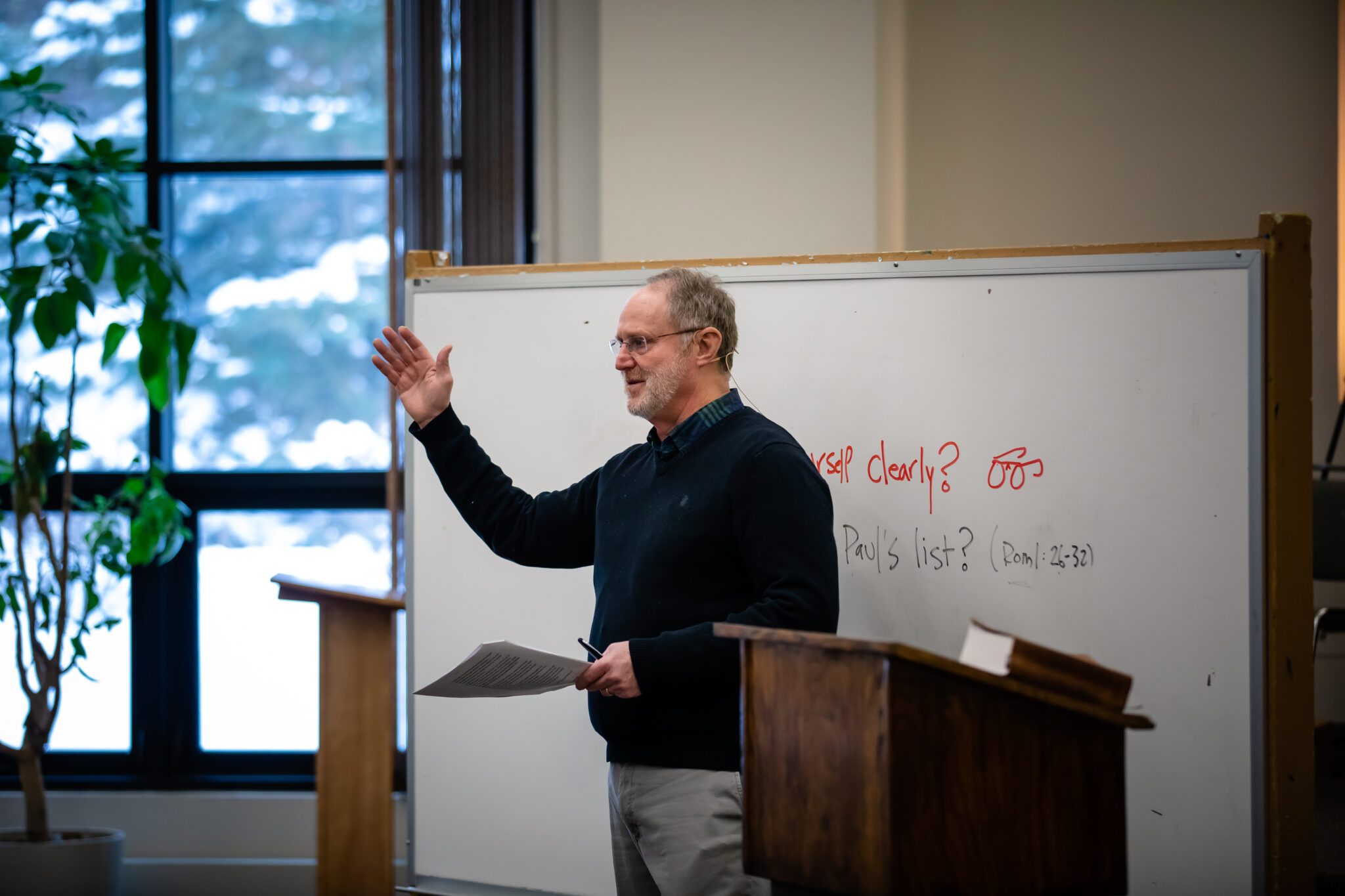Preaching and Repentance
- Steve Hatter

One of the blessed benefits of being able to pursue formal seminary training (even at my age!) is the countless small discoveries that come with diligently pursuing my class assignments. The absolute wonder of learning about God at ever deeper levels is indescribable, even for someone like me. I am a person who likes to describe things both verbally and with pen and ink.
About this time last year, I was enrolled in a Greek exposition class wherein one of the course requirements was to translate the Gospel of Mark from the original Greek into English. I had to do so at the blistering pace of about a chapter per week. I say blistering pace because I found this task to be challenging! I am sad to say that learning foreign languages does NOT come easily for me. Nevertheless, I plodded on in this required class—forcing mechanisms are often the only way to get hard things done—and soon enough, to my delight, Mark’s Gospel began to grab hold of me like never before.
Reading Mark’s eyewitness account just as he wrote it under the inspiration of the Holy Spirit, was eye-opening. I would like to share one example of a marvelous discovery that I heard preached in a reinforcing way this past weekend while Cynthia and I were out of state visiting family.
Consider Mark 1:14–15:
“14 Now after John was arrested, Jesus came into Galilee, proclaiming the gospel of God, 15 and saying, “The time is fulfilled, and the kingdom of God is at hand; repent and believe in the gospel.”
In these two short verses, pivotal and profound things are happening, not the least of which is the massive reality that Jesus Christ is beginning his earthly ministry. Suffice to say there are many, many sermons to be mined from this short text, but for today, I want to concentrate on two benchmarks of Jesus’ ministry approach:
- Jesus’ priority was preaching: “Jesus came into Galilee, proclaiming the gospel of God”
- Jesus’s priority of preaching was repentance: “saying, ‘The time is fulfilled, and the kingdom of God is at hand; repent and believe in the gospel.”
The order of things is important in Scripture, and you can bet that Mark’s pithy description of Jesus’ first ministry work being preaching is pointing to something of foremost importance! Jesus came into Galilee proclaiming the Gospel of God. The Greek verb Mark used is κηρύσσω—to make public declarations, proclaim aloud—which he used in participle form to communicate that Jesus came preaching, and his preaching was ongoing—not a one and done approach at all.
The whole counsel of Scripture communicates that preaching is vitally important in God’s program for humanity and that preaching the “gospel of God” is a profound responsibility. Jesus, as always, led by example is demonstrating this priority. Therefore, the call to preach biblically should move pastors to construct a Holy Spirit-inspired message that provokes a faith response in the hearer. Why? Because this is how Jesus did it!
There is a fundamental difference between an exegetical lecture and an expository sermon, and it is this: Preaching must demand a verdict from the heart of the hearer. If expository preaching is an effort to accurately explain, illustrate and apply the Holy Scriptures to life, then every sermon must be viewed as a sacred transaction between God and the hearer of His perfect Word. Such a characterization stands in stark contrast to the mere exchange of thought-provoking information as typically occurs in a college classroom setting wherein one might hear an exegetical lecture. Jesus, fully God and fully Human, began His ministry preaching. His preaching was the gospel of God, and His words demanded a heart response—believe and repent.
Every time you sit under doctrinally sound preaching you should be moved to believe and repent! Every time I sit under the authority of a called and trained expositor, I should consider the transaction a message specifically to me. Every sermon is indeed a divine appointment, a gift of grace to hear of my personal sin and to repent of it. This is the Christian life. Regeneration produced a heart willing to be sanctified, and preaching is God’s primary tool to achieve sanctification in us.
So here is the discovery, the gem, as it were. I was reminded of what I had read over a year ago when I found myself under doctrinally sound preaching this past Sunday at a small little church in Bremerton, Washington. The reminder was this: While God’s truth does indeed expose the horrors of a sin-wracked world “out there” beyond the walls of our church sanctuaries, the main point of preaching is not to highlight that disaster and stir us good Christians to charge after fixing it. No, the main point of preaching is to hear about, acknowledge, repent of, and grow through the mess we create with our own sinful hearts. God will indeed use us to influence the world He is sovereign over. You can be sure of that. But we must allow Him to do the arduous work on us first before we charge off into the fray.
I have been thinking all this week about the things I need to repent of and in so doing, I have also thought about this work considering the Lord returning tomorrow. He will not come again preaching. He will come again to judge. I want to do all I can right now to consider that judgment.
Think about Jesus preaching, and preaching repentance when you sit under Pastor Jeff this coming Sunday!










